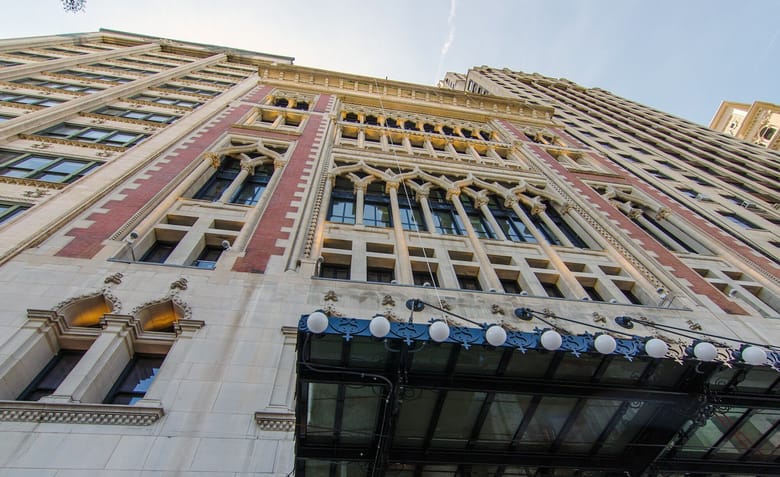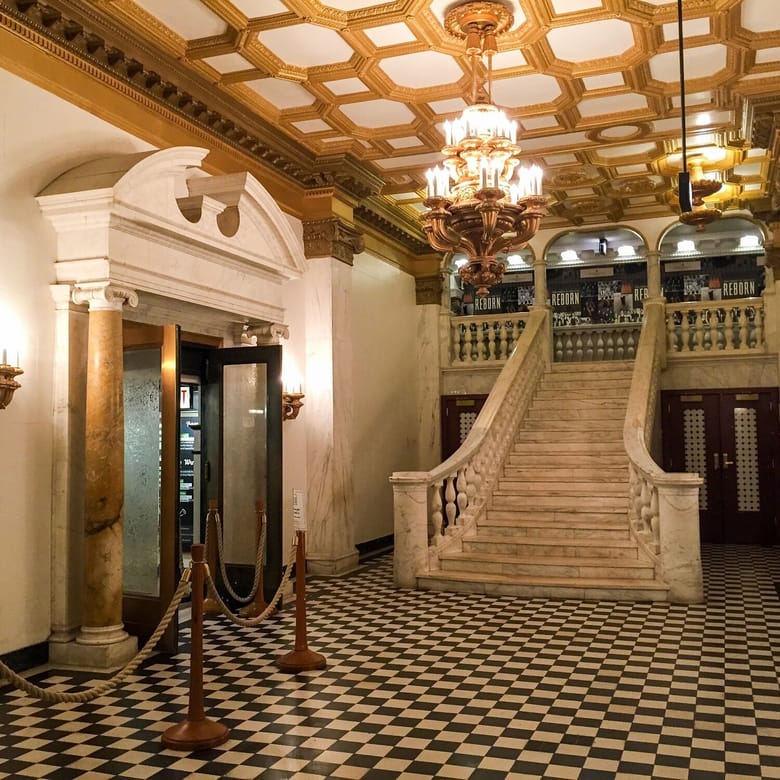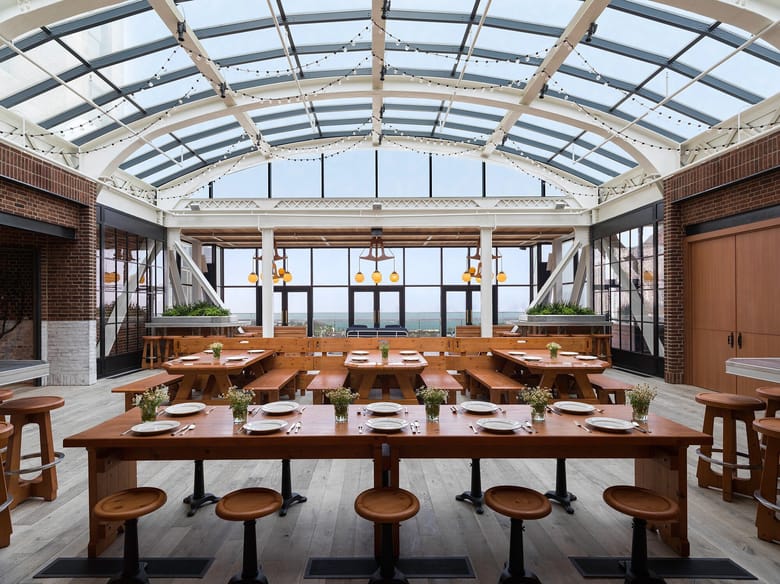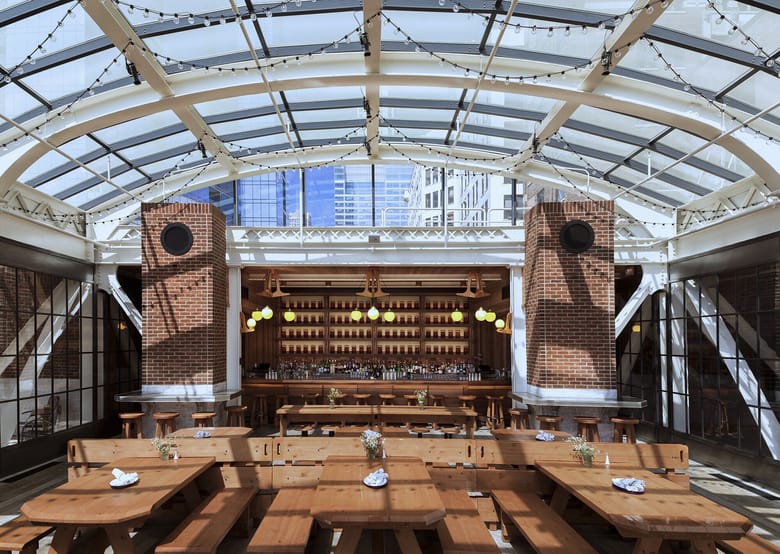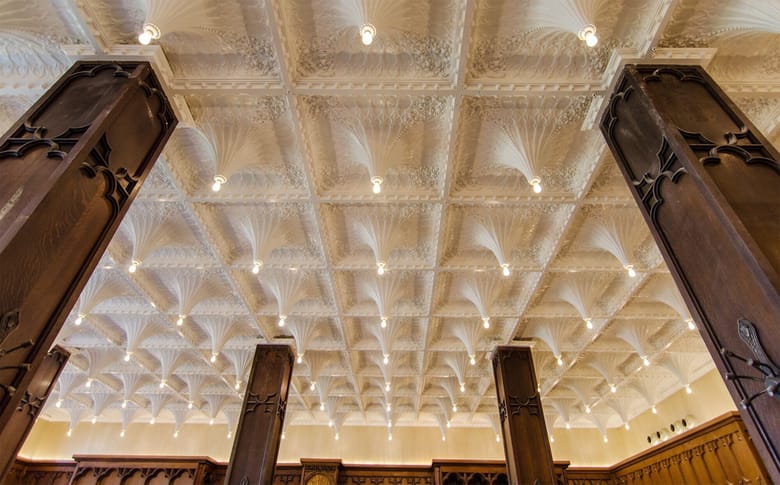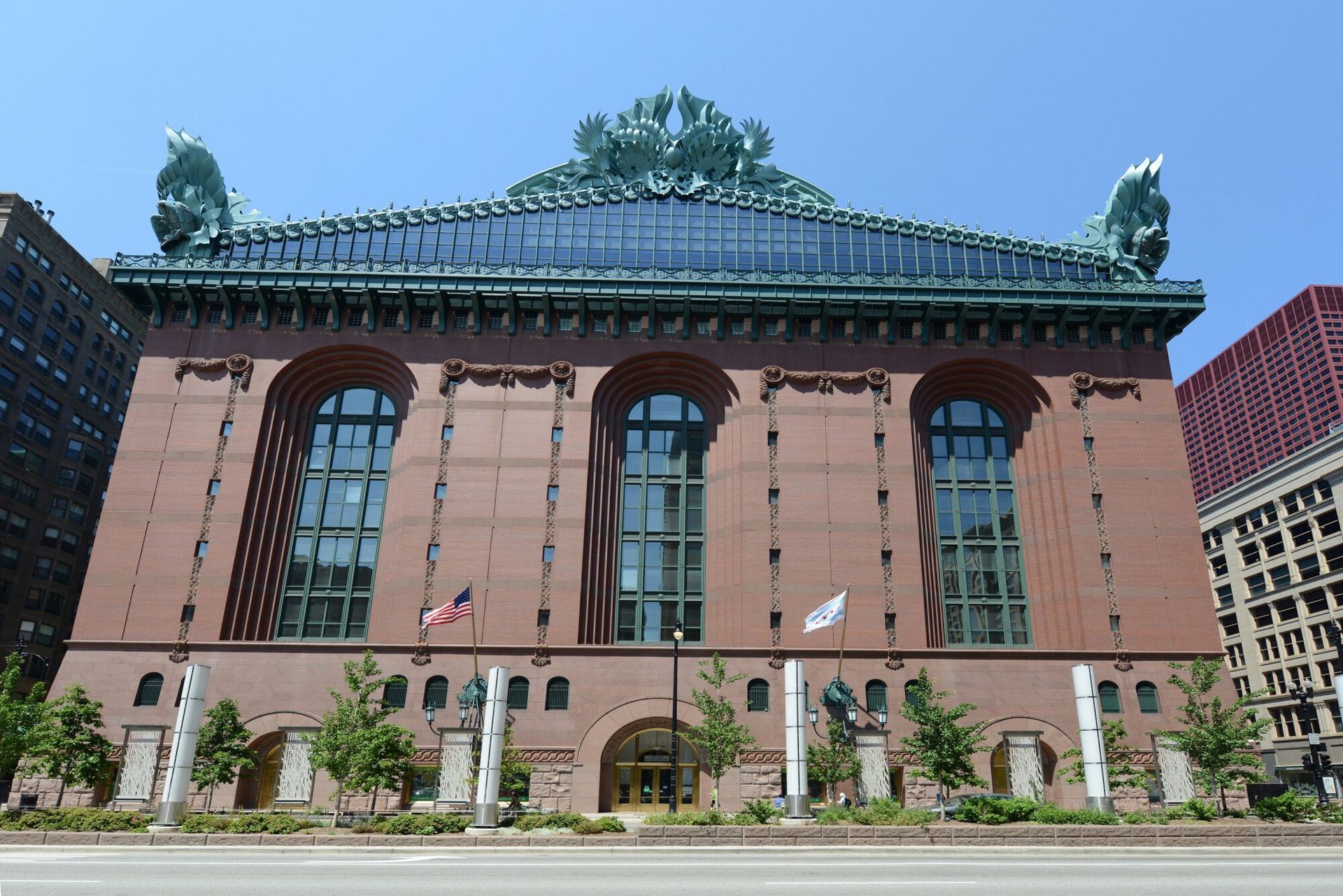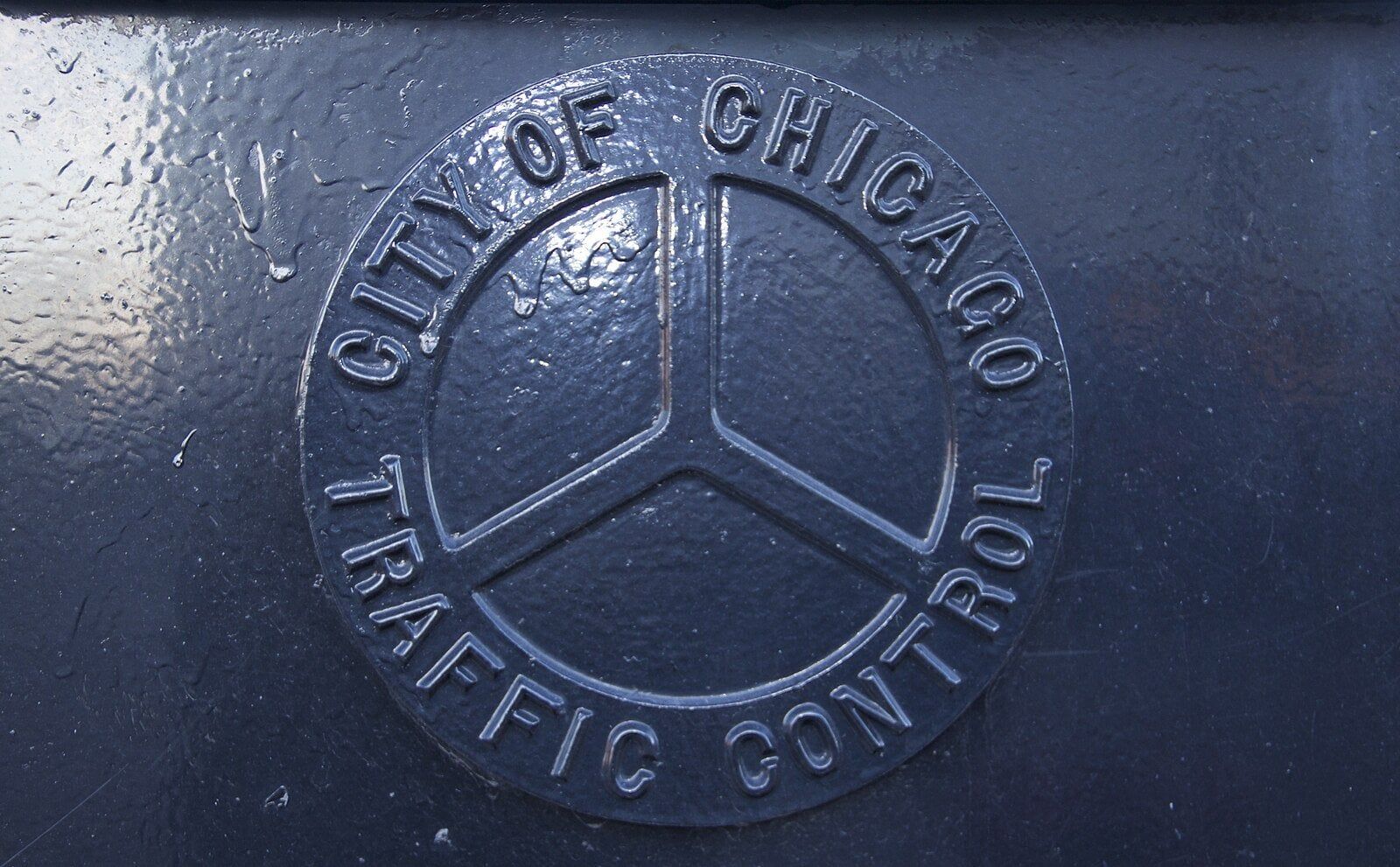The Chicago Athletic Association Hotel has done just that, painstakingly restoring a landmark that—for more than a century—most people could only appreciate from the outside.
A HOME AWAY FROM HOME FOR THE ELITE
The Chicago Athletic Association opened in 1893 amid the boom surrounding the World’s Columbian Exposition. It offered an escape from the city, with all the comforts of a well-appointed home—and excellent athletic facilities for its members to enjoy. Private clubs had long been an important institution among the well-heeled of the East Coast, many of whom found themselves spending increasing amounts of time in the fast-growing capital of the Prairie.
RESTORING A VENETIAN GOTHIC EXTRAVAGANZA
The CAA is an integral part of the historic Michigan Avenue streetwall, yet its details set it apart. Patterned after the palace of the Doge in Venice, its most notable feature is a course of distinctive, criss-crossing arched windows. Behind the elaborate facade are two lavish lobby levels, the second offering cozy seating clustered around several fireplaces.
The fate of the building was murky when the Chicago Athletic Association closed in 2007. After a few perilous years, a meticulous restoration began, led by Hartshorne Plunkard Architects. Historic interiors were painstakingly brought back to life, and interior architects Roman + Williams brought together of-the-moment interior design with references to (and even reuses of) sporting elements from the building’s past. New high-speed elevators are lined with old squash court flooring, and every guest room has a bench in the shape of a pommel horse.
FROM BOOM TO BOOM
The CAA building arose during the boom of the 1890s. Its new incarnation as a hotel is firmly a part of the mid-2010s boom in new downtown Chicago hotels. This ambitious adaptive reuse has created a focal point in the ongoing resurgence of the Loop. The luxurious club atmosphere, with its handcrafted cocktails and game room, is now open for all to enjoy.
Did you know?
Women were long welcome in certain spaces and events at the Club but could not become full members until the 1970s.
Did you know?
A swimming pool was removed during restoration, but the space it once occupied—called “The Tank”—has swimming lane lines in the floor.
Did you know?
Foundations were reinforced and special supporting structures built to bear the weight of a sleek new rooftop bar with sweeping views of Millennium Park and Lake Michigan.
